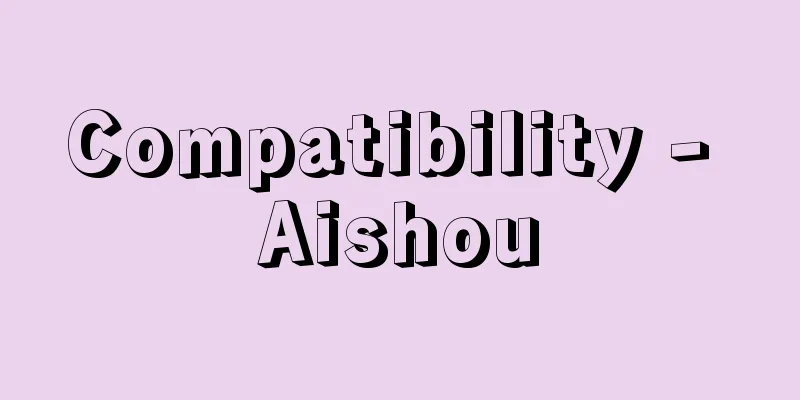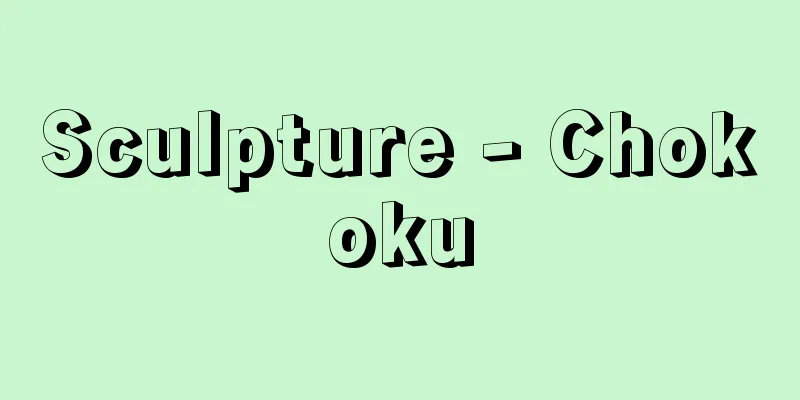Compatibility - Aishou

|
A phenomenon that judges the similarity and compatibility of characters between people. In real relationships, people would judge each other's characters by whether they "get along" or "get along well," and would form friendships called "Tsure" and "Doshi," and even swear to be "brothers." This custom was recognized throughout Japan. However, in many cases, character judgments were based on the Yin-Yang and Five Elements theory, the Chinese zodiac, and the Nine Stars, and were used especially in matchmaking. According to the theory of the five elements, every human being is born with one of the sexes: wood, fire, earth, metal, and water. If a man and a woman have the sexes of wood and fire, fire and earth, earth and metal, metal and water, or water and wood, they are considered to be in a state of mutual generation (soushou) and therefore good luck in a matchmaking relationship, while if they have the sexes of water and fire, fire and metal, metal and wood, wood and earth, or earth and water, they are considered to be in a state of mutual destruction (sokoku), and therefore bad luck. However, there are many different ways to combine good and bad luck, and the I Ching system was developed to judge them professionally. In the Chinese zodiac, there are "opposite zodiac signs," and men and women born in the years of the Rat and Horse, Ox and Sheep, Tiger and Monkey, Rabbit and Rooster, Dragon and Dog, and Snake and Pig are said to be compatible. Also, a four or ten year difference between a man and a woman was frowned upon, being called "four eyes and ten eyes" (four evils and ten evils). And as the proverb "compatibility is more important than charm" (Uda County, Nara Prefecture) says, compatibility was sometimes the deciding factor in the success or failure of a marriage proposal. Such marriage proposals were generally based on arranged marriages mediated by a matchmaker, and as love marriages have become more popular, questions about compatibility have gradually declined. [Takeda Dan] Source: Shogakukan Encyclopedia Nipponica About Encyclopedia Nipponica Information | Legend |
|
人間同士の性格の類似や適応を判断する現象。実際の交際で、「気があう」「ウマがあう」などと相互の性格を見立て、ツレ、ドシなどとよばれる友人関係を結び、さらに「兄弟分」の契りを結ぶといった習わしは日本全国に認められた。しかし多くは、中国渡来の陰陽五行(いんようごぎょう)説や干支(えと)、九星などの説による性格判断がなされ、とくに縁談に用いられてきた。五行説によれば、人間だれしも生まれつき木火土金水(もっかどごんすい)のうちの一つの性をもち、男女が木と火、火と土、土と金、金と水、水と木の性ならば相生(そうしょう)で縁談は吉、水と火、火と金、金と木、木と土、土と水の性は相剋(そうこく)で凶とした。ただし吉凶の組合せ法は多種多様で、それを専門的に判断する易(えき)がおこった。干支では、「向かい干支」と称し、子(ね)と午(うま)、丑(うし)と未(ひつじ)、寅(とら)と申(さる)、卯(う)と酉(とり)、辰(たつ)と戌(いぬ)、巳(み)と亥(い)の年の男女は相性がよいといわれた。また男女4歳、10歳の開きは四目十目(よめとおめ)(四悪十悪)と嫌われた。そして「愛嬌(あいきょう)よりも相性」(奈良県宇陀(うだ)郡)の諺(ことわざ)のように、相性が縁談の成否を左右することもあった。このような縁談は一般に仲人(なこうど)を媒介とする見合い婚に基づくもので、恋愛婚の高まりとともに、相性を問うこともしだいに衰えてきている。 [竹田 旦] 出典 小学館 日本大百科全書(ニッポニカ)日本大百科全書(ニッポニカ)について 情報 | 凡例 |
<<: Bibliophile - aishoshumi (English spelling)
Recommend
Yunnan problem - Unnanmondai (English spelling) Yun-nan; Yün-nan
A diplomatic dispute between Britain and the Qing ...
SDR - SDR
Special Drawing Rights is the abbreviation for th...
Rossi, A. (English spelling) RossiA
…Rather, a new issue emerged: plans to preserve a...
Speranskii, Mikhail Mikhailovich
Born: January 12, 1772, Cercutino Died: February 2...
Reform bureaucrats - hidden bureaucrats
The bureaucratic forces that sought to realize st...
Pothos (English name) Epipremnum aureum
It is a climbing herb of the Araceae family, and i...
Ground Survey - Jibanchosa
A survey conducted to understand the characteristi...
Song - Shoka
〘 noun 〙 (old name: shouga)① (━suru) To sing a mel...
al-Dhahabi (English spelling)
In particular, the History of the Prophets and Ki...
Grain size - Bunryu
An operation to separate powder or granular materi...
Akihabara
Akihabara (Tokyo) Source: "Japanese Handy Boo...
Dolce stil nuovo (new style)
A style of poetry that emerged in the Tuscany regi...
Matsue Plain - Matsue Heiya
A plain in the eastern part of Shimane Prefecture...
Nyaungyan
…1287-1555. It may also refer to the Nyaungyan dy...
Ignatius de Loyola
1491‐1556 Founder of the Society of Jesus. Baptize...









